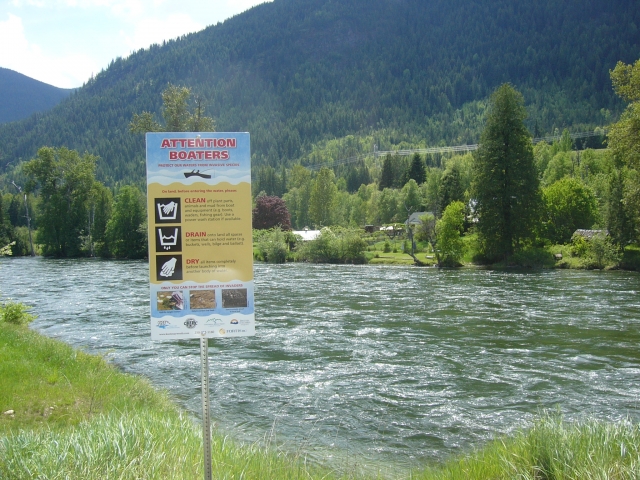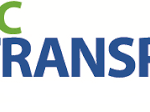Clean, Drain, Dry will help prevent the spread of zebra mussels into the Kootenays
Clean. Drain. Dry. These simple steps will prevent zebra mussels and other aquatic invasive species from spreading into the waterways of the Kootenays.
Aquatic invasive species, such as zebra mussels, Eurasian water-milfoil and New Zealand mudsnails have devastating impacts where they are introduced. They can ruin fishing and recreational opportunities, alter aquatic habitat for plants and animals, and block water intake structures for hydro power.
“Hydropower facility costs associated with an infestation include the installation of control systems, antifouling paints, cleaning, and potentially, lost power production caused by clogging of the trash racks.” says Sheila Street, Chair of the Central Kootenay Aquatic Invasive Species Working Group.“In a US Columbia Basin impact study, the total estimated capital cost of a zebra mussel infestation for hydropower facilities, not including power losses, is estimated at over $8,800 per mega watts of hydro plant capacity with about $160 annual operating cost per mega watt capacity.”
Although no impact studies have been conducted on the Canadian side of the Basin to date, with capacity of about 7500 MW on our side that translates to about $7.8 million in potential economic impact.
“Our waters are precious” says Margaret Hartley of the Slocan Lake Stewardship Society (SLSS). “We use them for recreation, drinking, and power generation. Zebra mussel infestations would affect all of us. It could mean anything from higher hydro bills for all of us, or taking the kids to the beach and finding nothing but a smelly bed of dead mussels.”
Aquatic invasive species hitch rides on boats, equipment, fishing waders, and other gear to spread into new water bodies. If there is a place for water to collect, there is a chance that zebra mussels or other invasive species may be transported. Boats heading for BC that have zebra mussel stowaways have been stopped at checkpoint stations in Idaho and Washington; however, there are currently no checkpoints for boaters coming from eastern Canada. Luckily, zebra mussels have not been detected in BC waters yet although early detection monitoring activities for the species has been very limited in BC.
“We can stop their spread by cleaning boats and equipment of visible debris, draining water from all conceivable places (including bilge, buckets, ballast water and wells) and letting boats and equipment dry for 30 days before entering a new body of water” says Crystal Klym, Program Manager for the Central Kootenay Invasive Plant Committee (CKIPC). “These simple acts can protect our waters.”
With funding from the Columbia Basin Trust and FortisBC, and in partnership with SLSS and the Province of BC, the CKIPC is installing signs at boat launches on Slocan Lake and associated waterways to remind users to Clean, Drain, and Dry.
“An ounce of prevention is worth a pound of cure” says Klym. “By preventing these species from entering our lakes and rivers, we can save millions of dollars in impacts in the future”.
For more information, or if you would like to sponsor a sign, contact CKIPC at 250-352-1160 or see www.kootenayweeds.com.


























Comments